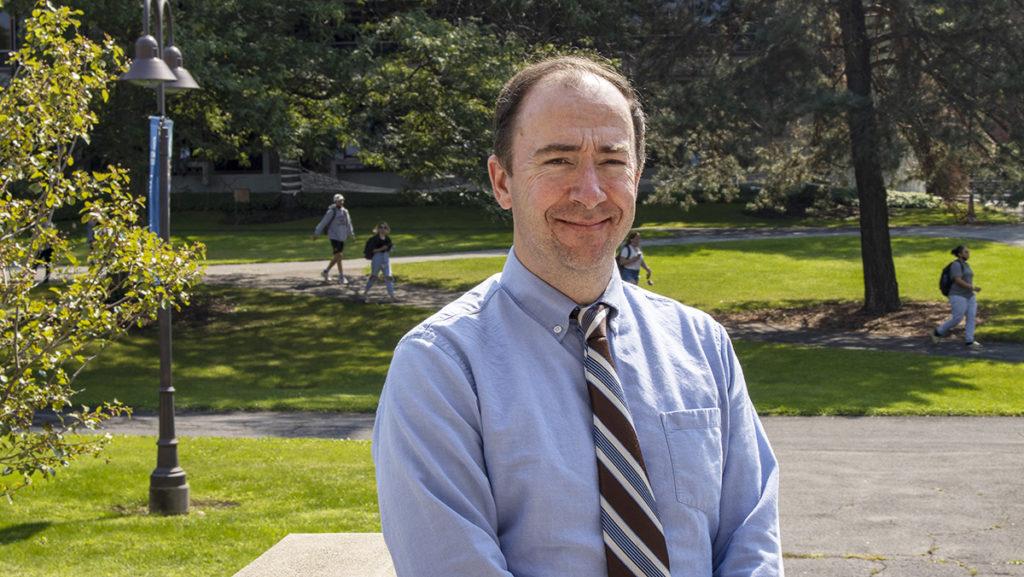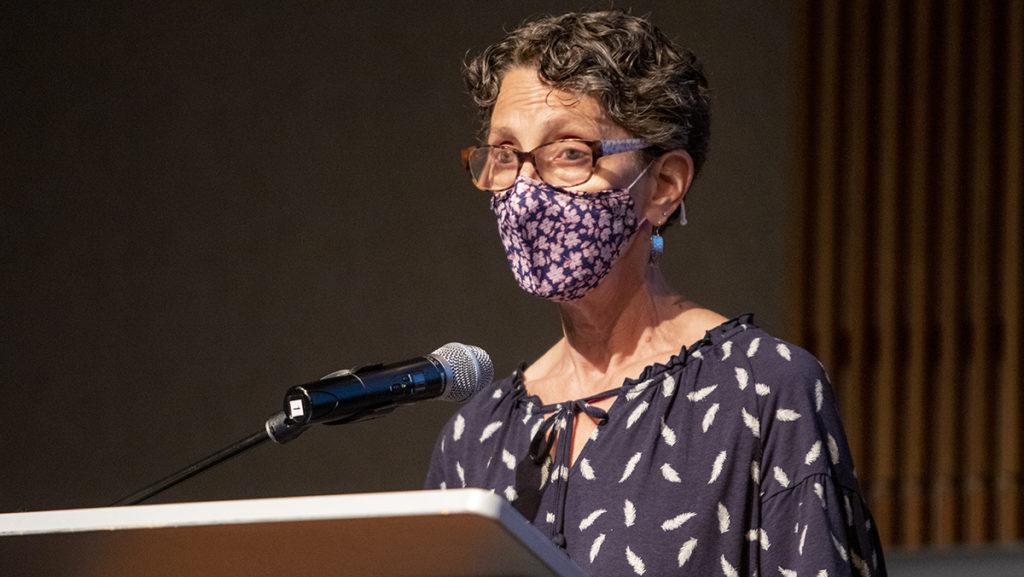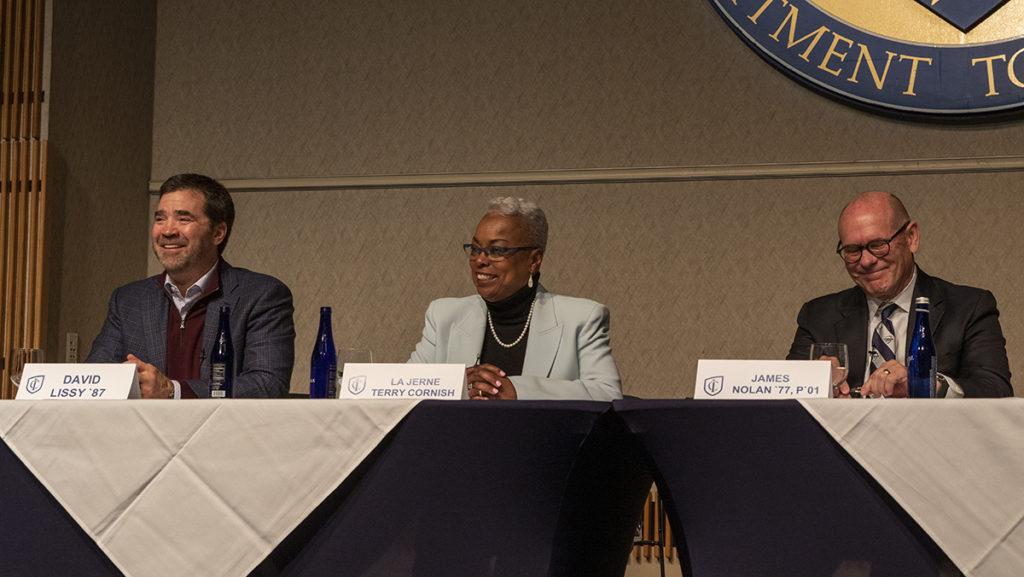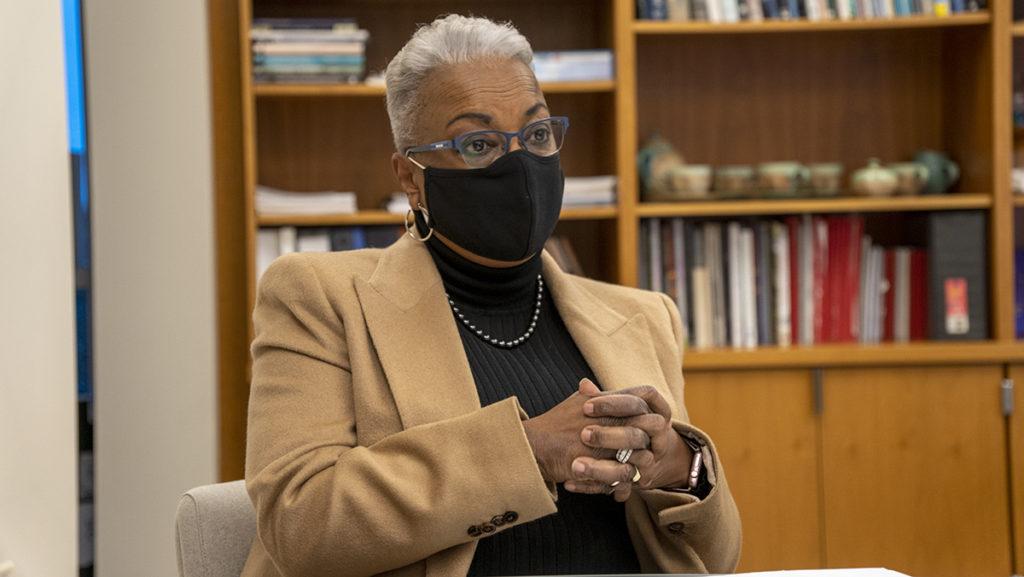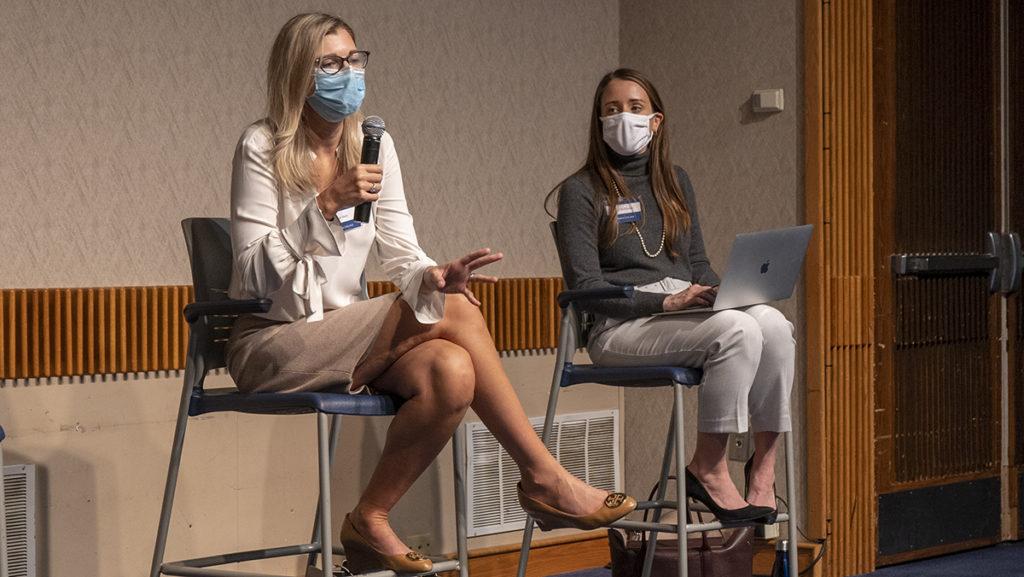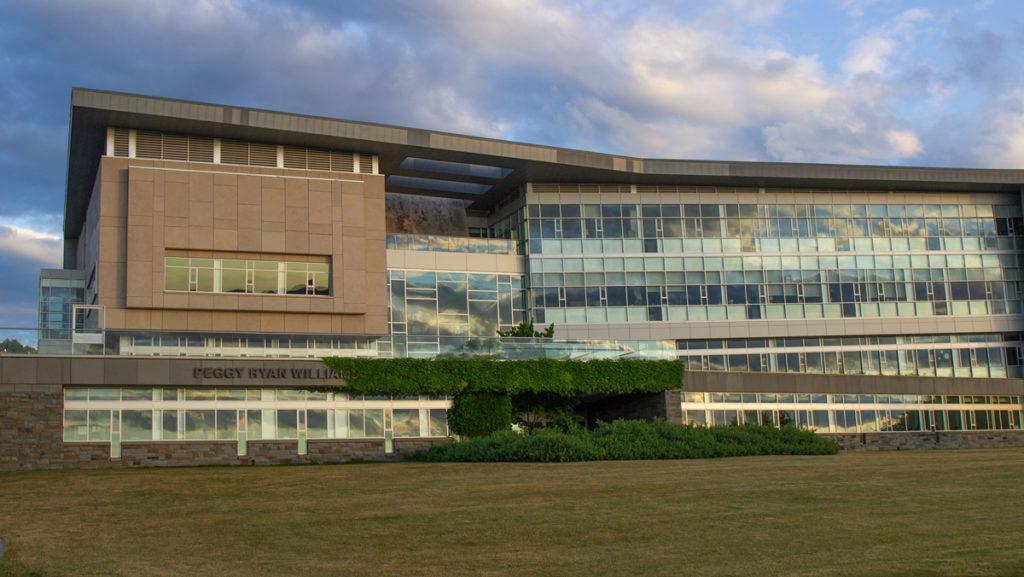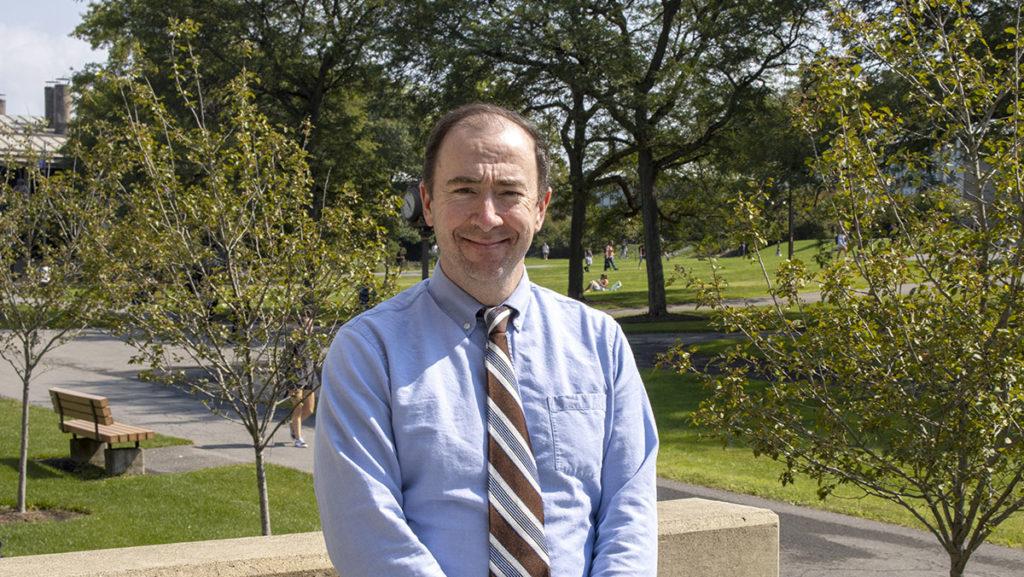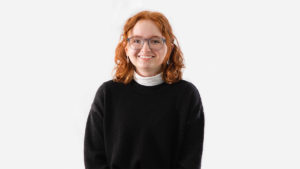The Ithaca College chapter of the American Association of University Professors (AAUP) is continuing to express the need for transparency in the current search for the college’s 10th president.
The Presidential Search Committee announced Oct. 6 that it picked the executive search firm Isaacson, Miller to use in the presidential search. In response, the AAUP released a statement Oct. 7. The statement listed three concerns it had with the committee and the Ithaca College Board of Trustees. The concerns were: the committee and board rejected the AAUP’s recommendations for shared governance in the search, the committee decided to run the search with the help of a firm and the search has not been declared open or closed.
“While the Board of Trustees is responsible for the selection of the next president, the search process is an optimal moment for the college to model a commitment to principles of shared governance by identifying ways in which all college constituencies can contribute meaningfully and deliberately,” the statement said.
Dan Breen, associate professor in the Department of English and president of the college’s AAUP chapter, said using a search firm can potentially be expensive and may not necessarily produce a better candidate. Using executive search firms to search for president or provost positions can cost public universities up to $100,000 and potentially more.
The AAUP released a statement Sept. 20 asking for transparency in the presidential search along with three principles it wanted the Presidential Search Committee and Board of Trustees to take into consideration during the search. The AAUP asked for the entire search to be held openly, the search be held without the use of a search firm and that committee members be elected rather than appointed.
Breen said he hopes that the board of trustees and search committee come to the decision to hold the search openly. The search for the college’s ninth president, Shirley M. Collado, began as an open search but eventually was closed during the final candidate stages. The search was also completed with the help of the executive search firm Spencer Stuart.
“The AAUP thinks that’s really essential because generally speaking, morale on our campus among faculty and staff is pretty low as it is, and having an open search process seems like it could be a sort of strong attempt on the part of the institution to start cultivating an atmosphere of trust,” he said. “And in addition, it gives the rest of the campus an opportunity to participate.”
In a statement to The Ithacan, David Fleisher ’91, chair of the Presidential Search Committee, and David Lissy ’87, chair of the board of trustees, said search firms are commonly used when looking for leadership positions in higher education. The statement said that despite the creation of the search committee, the members cannot take on the full-time work that comes with the presidential search.
“We are extremely pleased with the composition of Ithaca College’s search committee, which will bring a tremendous breadth and depth of expertise and perspectives to this critical work,” the statement said.
Fleisher and Lissy said the firm will help to manage and organize the search process, while the committee will evaluate the candidates the firm finds. They said the process includes open forums the firm is holding with the campus community. There were two open forums held — Oct. 19 and 20 — with the partners from Isaacson, Miller who are working with the college for members of the campus community to share their thoughts on what they are looking for in the college’s next president.
The Oct. 19 forum was held via Zoom while the one held Oct. 20 was in-person in the Emerson Suites. Kate Barry and Karen McPhedran were the two Isaacson, Miller partners who led the forums. About 30 people attended the Oct. 19 forum. Barry said the input given at the forum events will help to create a profile of what the community wants in the next president. The profile will then be given to the committee and then released to the public after committee approval.
“These conversations are really helpful in the drafting of [the position profile] and that position profile will be used in our networking effort where we will go out and talk to people who don’t yet know that they want to be the next president of Ithaca College,” she said at the forum.
Kathleen Mulligan, professor in the Department of Theatre Arts, said she is looking for a president that is committed to the college and will stay at the college while they implement changes. Collado received backlash from members of the campus community who were upset that she was leaving after implementing the Academic Program Prioritization (APP) process. Collado was only at the college for four years, the shortest tenure of all nine presidents of the college. Mulligan also said she wanted someone with resilience.
“If you’re going to do it, I think a person needs to be resilient and be able to be in that position,” she said.
Senior Kellie Swensen said they want a president who values communication and transparency. Swensen also said they want the search to be open, unlike the search for Collado. They said it is important to be able to learn about candidates’ backstories before hiring them to positions of power.
Barry did not say if the search will be open or closed, however, she said it is difficult to have a public, open finalist phase of the search.
“The reason for that is the candidates simply aren’t willing to do it,” she said. “It’s not necessarily because they have something to hide, it’s because they’re trying to protect their current institutions.”
Jonathan Ablard, professor in the Department of History, said morale on campus is at a low point. He said he has talked with students who are losing professors because of the APP, which he thinks has an effect on the value of the education at the college. Ablard said he thinks committee members and members of the board of trustees need to go out and talk to faculty members to hear their perspectives.
Dean of Students Bonnie Prunty said she wants to see a president who has had a wide range of experience working in higher education. She said she also hopes to see someone who has experience working in situations with constrained financials.
“It would be really beneficial to have somebody who can demonstrate that they’ve already done some really creative things in a situation where they didn’t have a lot of resources financially,” she said.



